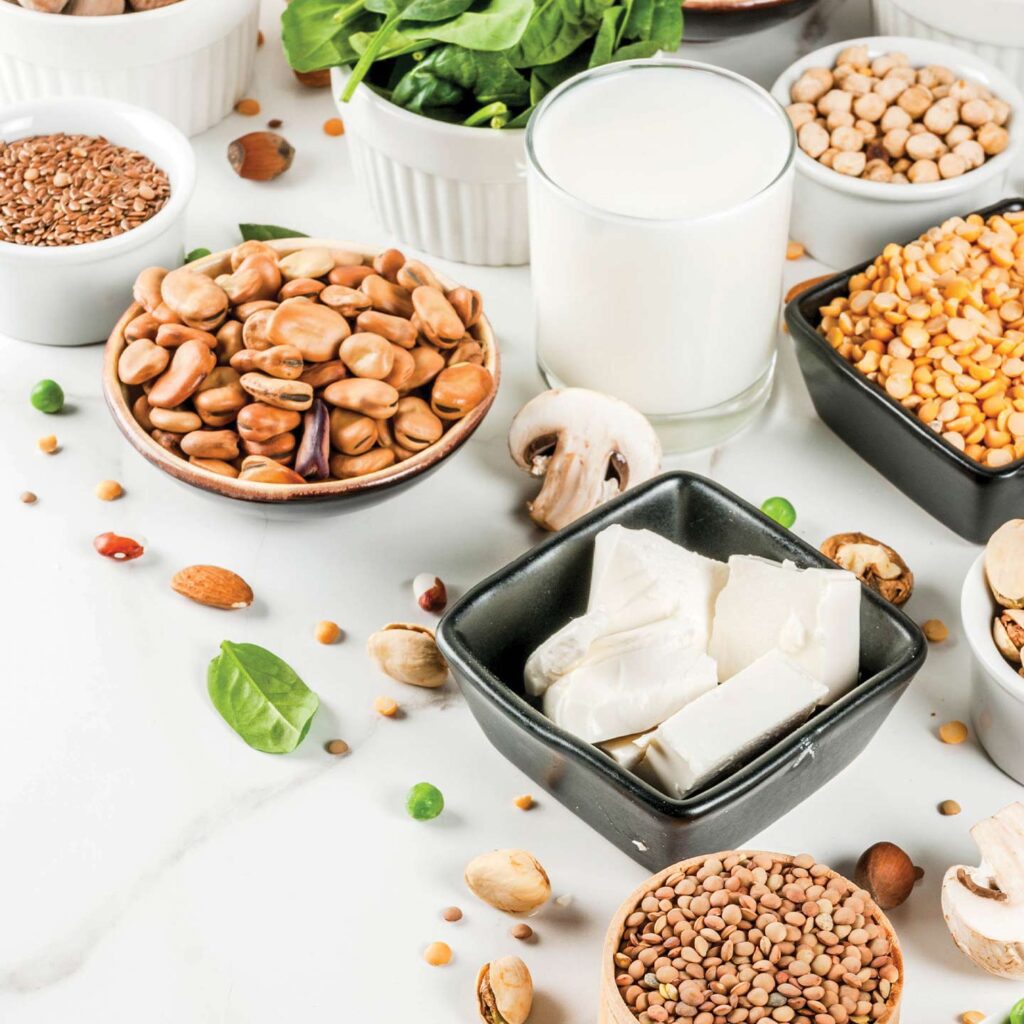Your Pressing Protein Questions, Answered
Protein is an essential part of a healthy diet. This macronutrient promotes muscle growth, enhances immunity, and fuels your energy, among other important functions. But in a world that’s inundated with protein products – everything from shakes and smoothies to powders and bars – is it possible to get more than you really need?
The truth is, the majority of Americans easily meet and even exceed their protein needs. For the average adult, the recommended dietary allowance is a minimum of 0.8 grams of protein per kilogram of body weight (for a person weighing 140 pounds, this would translate to roughly 50 grams of protein per day). For comparison, a standard three-ounce serving of chicken breast contains 26 grams – supplying more than half of the recommended daily intake.
Of course, this general recommendation doesn’t paint the full picture. For everything you need to know about eating enough protein, keep reading!
Who needs more protein?
In addition to size, factors such as age and activity level can determine how much protein you need. Protein needs increase as you age; it’s recommended that older adults (those 50 years and older) consume closer to 1 or 1.2 grams of protein per kilogram of body weight per day in order to better preserve muscle mass and maintain their independence. Athletes also have higher needs – anywhere from 1.2 to 2 grams per kilogram. Finally, expecting moms require a slightly higher intake of protein throughout their pregnancy.
When should you eat protein?
American diets are notorious for carb-heavy breakfasts and protein-heavy dinners, but it’s a much better idea to spread out your protein consumption evenly among your main meals. In fact, some research suggests that it’s beneficial to eat more protein earlier in the day, especially if you’re trying to build muscle. A good rule of thumb is to consume between 15 and 30 grams of protein per meal. Ideally, your protein intake should be balanced with carbohydrates and healthy fats.


What are the best sources of protein?
When it comes to protein-rich foods, most people immediately think of meat. And while animal sources of protein such as lean meats, poultry, and fish – plus eggs and dairy – can help you quickly meet your protein needs, it’s also possible to get everything you need from a plant-based diet. Legumes, whole grains, nuts and seeds, tofu, and even some vegetables are all excellent meatless protein sources. For example, one cup of cooked quinoa contains about eight grams of protein. Paired with a half cup of black beans alone, which clocks in at just over seven grams of protein, you’ve already created a meal that has a healthy dose of protein – and that’s if you don’t add veggies or cheese!
While protein bars, shakes, and powders can help those who aren’t getting enough protein in their regular diets, these supplements are often unnecessary and may be high in added sugars and calories; some brands of protein powders have as many as 20 grams of sugar per serving. Make sure to read the label carefully, and watch your portion size to keep consumption under 30 grams of protein per serving.
But can you consume too much protein?
This is one of those situations where “too much of a good thing” is applicable. Unlike carbs and fat, excess protein isn’t stored in the body; instead, it’s converted into glucose for immediate energy or stored as fat. In other words, overconsuming protein will not result in increased muscle growth or strength, and it could even lead to weight gain. Some studies also indicate that diets high in protein, especially protein derived from animal sources, can put added stress on your kidneys; in particular, those with kidney disease and a history of kidney stones are generally advised against high-protein diets.
At the end of the day, protein intake is highly individualized, and there are many ways to hit your protein goals. It never hurts to consult your physician or a dietician to make sure you’re meeting your needs!

